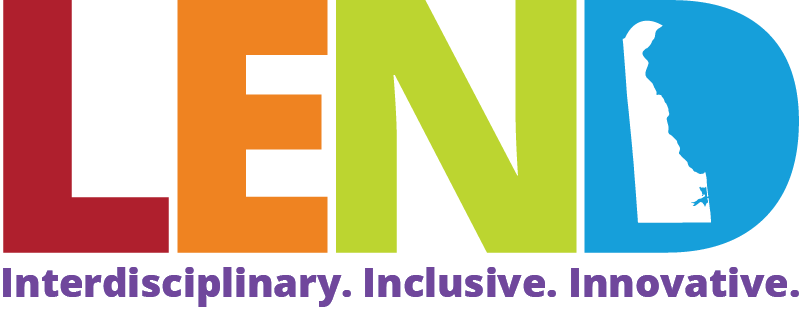
Leadership Education in Neurodevelopmental and Related Disabilities (LEND) program
Browse this collection of leadership project posters presented by past LEND cohort trainees.
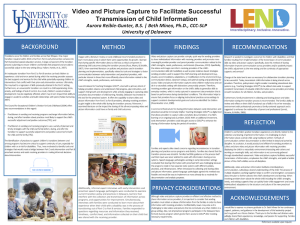
Transitions occur for children and families across their lifespan. One major transition required within IDEA is that from Part C early intervention services into Part B preschool special education services. A large component of the transition process is planning to ensure children and families feel prepared and are able to successfully adjust to the new setting (Rous, Hallam, Harbin, et al., 2007).
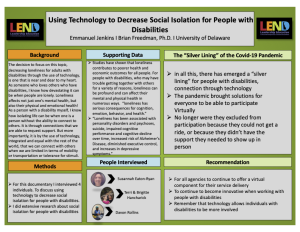
The decision to focus on this topic, decreasing loneliness for adults with disabilities through the use of technology, is one that is near and dear to my heart. As someone who loves others who have disabilities, I know how devastating it can be when people are lonely. Loneliness affects not just one’s mental health, but also their physical and emotional health! As a person with a disability myself, I know how isolating life can be when one is a person without the ability to connect to others. It is through connections that we are able to request support. But more importantly, it is by the use of technology, integrated and equal with the rest of the world, that we can connect with others when we are limited in terms of mobility or transportation or tolerance for stimuli.
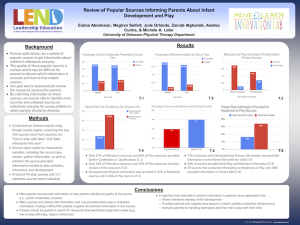
Parents with infants use a variety of popular sources to get information about children’s milestones and play. The quality of these popular sources is unclear, and it may be difficult for parents to discern which information is accurate and how to find reliable sources. Our goal was to systematically review the resources accessed by parents. By collecting information on these sources, we may be able to identify more accurate and unbiased sources on milestones and play for young children to which parents should be directed.
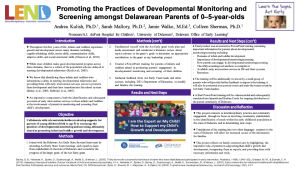
This project aimed to collaborate with relevant stakeholders to develop supports for parents of young children (birth to age 5) to encourage the practices of developmental monitoring and screening, ultimately aimed at promoting infant and toddler growth and development.
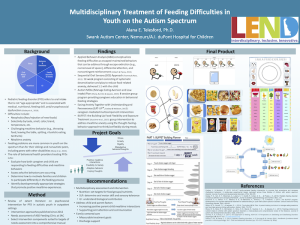
Pediatric feeding disorder (PFD) refers to oral intake that is not “age-appropriate” and is associated with medical, nutritional, feeding skill, and/or psychosocial dysfunction (Goday et al., 2019). The role of behavioral health providers treating PFDs is to:
-
Evaluate how both caregiver and child are responding to feeding difficulties and mealtime behaviors
-
Assess why the behaviors are occurring.
-
Determine how to motivate families and children
to participate differently in the feeding process
-
Identify developmentally appropriate strategies
that promote positive mealtime experiences.
-
